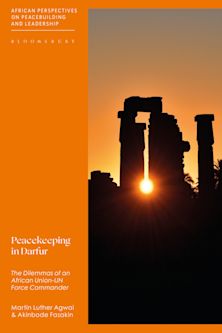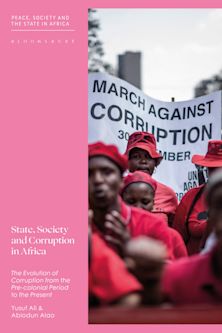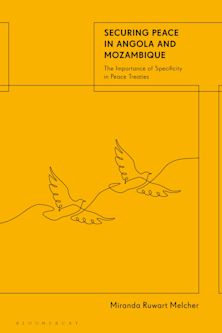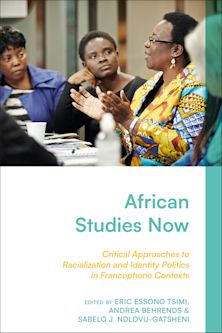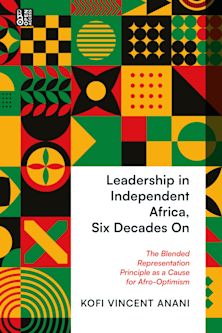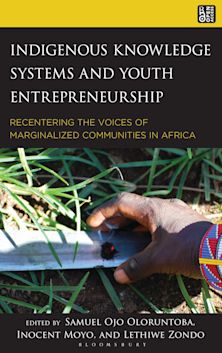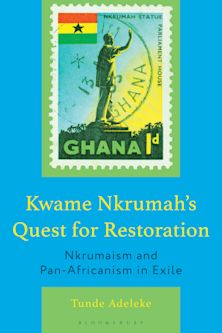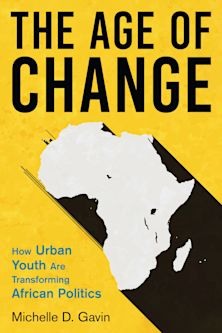- Home
- ACADEMIC
- Politics & International Relations
- African Politics
- Political Humour and Zimbabwean Identity on Social Media Platforms
Political Humour and Zimbabwean Identity on Social Media Platforms
Political Humour and Zimbabwean Identity on Social Media Platforms
This product is usually dispatched within 1 week
- Delivery and returns info
-
Free CA delivery on orders $40 or over
You must sign in to add this item to your wishlist. Please sign in or create an account
Description
Political Humour and Zimbabwean Identity on Social Media Platforms by Mbongeni Jonny Msimanga studies Zimbabwean digital political communication to investigate how political satire constructs, critiques, contests, mediates, and negotiates national identity. Focusing on Bustop and Magamba TV, two YouTube channels that specialise in satiric political skits, this book demonstrates what it means to be a Zimbabwean, and who or what authorises such belonging. Msimanga traces contestations of Zimbabwe’s national identity since independence in 1980, refracted by the Gukurahundi genocide, questioning national sovereignty and national security, the fast-track land reform programme, and human rights abuses perpetrated by the incumbent ZANU-PF government. This book provides a conceptual framework that deploys a context-sensitive understanding of satire relevant to the global south and to Zimbabwe. Msimanga concludes that Magamba and Bustop TV are successful in utilising opportunities inherent in the inflection point and crossroads facing Zimbabwe to open and amplify new spaces for contesting, negotiating, and critiquing what it means to belong to the national project.
Table of Contents
Introduction: The Personal and The Political: Mapping National Identity Constructions in Zimbabwe
Chapter 1: Media, National Identity Constructions and Political Satire in Zimbabwe
Chapter 2: Conceptualising Satire: Towards an Africa-Friendly Framework of “Dissident” Satire
Chapter 3: Satire, Political Violence and Abductions in Zimbabwe
Chapter 4: Laughing at Power, Legitimacy and Corruption in Zimbabwe
Conclusion
References
About the Author
Product details
| Published | Jan 29 2025 |
|---|---|
| Format | Hardback |
| Edition | 1st |
| Extent | 194 |
| ISBN | 9781666943283 |
| Imprint | Lexington Books |
| Dimensions | 229 x 152 mm |
| Publisher | Bloomsbury Publishing |
About the contributors
Reviews
-
In this compelling book, Mbongeni Jonny Msimanga explores the dynamic intersection of political satire, national identity, and youth-led resistance in Zimbabwe’s digital landscape. The book offers a nuanced analysis of satirical content produced by Magamba and Bust Stop TV, demonstrating how these platforms challenge the ruling party’s narrative and expose sociopolitical realities. By examining the historical context of Zimbabwe’s political landscape and the role of media and activism, Msimanga provides a rich understanding of the power of satire as a tool for dissent and democratic change. His framework of ‘dissident’ satire, grounded in African cultural practices and theoretical perspectives, further enriches this insightful study, making it a valuable contribution to the study of media, youth and politics in Africa.
Francis B. Nyamnjoh, University of Cape Town
-
Mbongeni Jonny Msimanga’s Political Humour and Zimbabwean Identity on Social Media Platforms is a thoughtful, well-researched, and theoretically-sound volume that adds to knowledge about the deterritorialisation of critical political communication from physical spaces dominated by monolithic, state-controlled media mouthpieces to social media platforms in cyberspace. By deploying humour as the main weapon of their “performative activism” and political communication, Magamba and Bus Stop TV opened up the monolithic, state-controlled space of political communication in Zimbabwe to a multiplicity of narratives of difference, national identity, and the very notion of “Zimbabweanness.” These channels also use humor as a tool of subtle resistance against the static, shop-worn nationalistic and identitarian discourses of the authoritarian regime of Zimbabwe, resisting majoritarian ethno-nationalist marginalization, repression, erasure of the minority, political intimidation and perpetual climates of fear. Through this work, Msimanga demonstrates the reality that social media platforms have become arenas of counter discourses, spaces of contestation, and of speaking truth, albeit humorously and obliquely, to the powers that be.
Lyombe Eko, Texas Tech University
-
Mbongeni Msimanga's seminal work introduces a nascent theoretical framework for understanding how subalterns, through satirical dissidentiality, challenge power structures, even while facing potentially fatal consequences. By exploring these daring acts of creative defiance, Msimanga offers fresh insights into the evolving nature of protest cultures and political expression in oppressive environments, making this book essential reading for scholars of political science, media studies, and cultural resistance.
Trust Matsilele, Birmingham City University
-
A much-needed book that updates and leads us into rethinking the role of media and use of humour and satire in African politics. It magnifies the Zimbabwean problem, how it has been humorously engaged with and the possibilities of humour as a political tool that might lead to change.
Shepherd Mpofu, University of South Africa

ONLINE RESOURCES
Bloomsbury Collections
This book is available on Bloomsbury Collections where your library has access.












